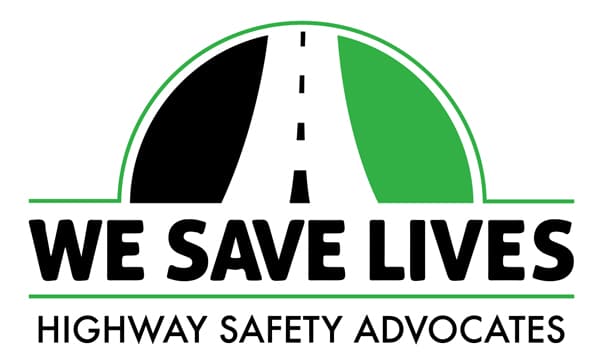
Are you ready for summer with gorgeous, sunny days behind the wheel? Who can blame you. After months of frigid white knuckle commutes, everyone is ready for the sun. But are you really ready for those sunshine roads?
Most Canadians would be shocked to discover that our short lived summer season is also our deadliest driving season. Emergency services know it. Our ER docs know it. You can bet your insurance company knows it too. When everyone but you is in the know, it’s time to level the playing field. Let’s take a drive down the summer road to know.
When the worst happens, you need a roadmap in hand. It’s a lot more practical than you might think. Let’s cut right to the chase. Buckle up. Here’s your Top 7 Car Crash Checklist:
Get To The Hospital: when cars collide, severe injuries are the norm and chances are your ambulance has already been called. But shock and the unwillingness to accept that a crash has actually happened, can make some victims deny obvious injuries. Immediate emergency medical attention is necessary and pretending a crash didn’t happen will not make the pain go away. Getting medical attention is essential for your well being. It also documents your injury and starts a written record of your injury and treatment. It’s critical. And after you get emergency treatment, follow up with an appointment to your family doctor. Your family doctor will be your key day to day treatment provider and your primary medical record keeper.
Report It: if the police are already on scene, let them do their job. An officer may also meet with you at the hospital. Ask the officer who takes your statement for her I.D. including her name, badge number and which police department she works for. Ask for one of her public information cards with her station phone number. Get a copy of the full, long form Motor Vehicle Collision Report. This is the long page that has the officer’s hand drawn crash diagram on it. It will have the at fault driver’s name, address and insurance information as well as critical witness information and list any charges laid against that at fault driver. Did You Know? If you think you may have contributed to the crash in any way or even caused the crash, you need to call a criminal defence lawyer ASAP. This is really important when someone has been hurt. Never admit guilt at the scene or at the hospital. You may not know the whole picture and you could be wrong. Let the officer know that you wish to cooperate but be firm about speaking with your lawyer first. Also make a call to your insurance company as admitting liability can impact your coverage. Don’t waffle. Don’t let anyone talk you out of it. Make those calls.
Notify Your Car Insurance Company: in Ontario, you should notify your insurance company within 7 days of the crash. Should you be in surgery, and then recovering in ICU, our Courts will understand the delay. But notify your insurer as soon as you reasonably can. If you have your own car insurance, you can notify your own car insurer. Statutory Accident Benefits (SABs) are available and, along with other benefits under your policy, may help pay for some immediate medical and rehabilitation expenses. Check with your broker to confirm that you had purchased the optional, additional SABs. If you have them, use them for your recovery.
Take Selfies: your bruises, cuts and scrapes will fade with time. If you can see them now, you can feel the pain now. Record your injuries before they are no longer visible to the eye. Ask a trusted family member to help you with the photos.
Bag It: if the hospital has not already discarded your damaged clothing, ask that it be returned to you. Carefully bag your ripped and torn pants, shirt, glasses, damaged hearing aid, watch, phone and any other clothing or personal items damaged in the crash. Don’t wash those clothes. Don’t iron them. Just leave them as is. Place them in a safe, easy to find spot in your home. Write a note to yourself to help you remember where you stored them.
Write It Down: set aside a quiet hour to write out in detail exactly what happened that day and how the crash occurred. Even if you have an imperfect memory or little memory of the crash, write down what you can. Try your very best to go through the happening of the crash step by step including the events leading up to it and what happened after. The details are fresh in your mind now. Take the time to do it right now before you forget those details. Your written account of what happened to you is your private property. You don’t have to give this to an insurance adjuster or investigator if you don’t want to. You can choose to share it with your lawyer instead and she can help you to decide when to share and with whom.
Do Your Homework: keep all your receipts for all out of pocket expenses you incurred as a result of your crash. You would be amazed how quickly expenses add up. If in doubt, keep the receipt. A simple practice is to get an inexpensive notebook and tape or staple your receipts in each day. Don’t forget to use that notebook as a diary. Want to go digital? Take pics of your receipts on your phone. Use your favourite note keeper app for notes. But before you spill all your personal info, do check reviews online to best ensure that your app is actually secure. Write down what your day was like living with your injuries. Record your medical appointments including the name of the doctor you saw, what she told you and the name of any prescription. Record the impact of your crash injuries on your day to day life and your family’s lives. If you can’t take your kids to softball practice because of the pain, write it down. This is your diary of your pain and your loss. It is your personal property and you have the freedom to choose to share it with your lawyer.
About That Lawyer:
Please remember to call an experienced injury lawyer to discuss your injuries. Some injury lawyers offer a free initial telephone consultation. It’s worth the call for your peace of mind. Protect yourself and make the call.
Car crash claims have a limitation period – a time limit – when a lawsuit must be started or you risk losing your right to obtain compensation for your injuries and loss. Call a lawyer to get this timely information for your case. Don’t put it off and risk running out of time.
Experienced injury lawyers know that our summer roads are our worst roads. Now that you know, make sure to keep these handy tips in mind. We hope you never, ever need to use them. Enjoy your summer, but never forget. Our summer roads are the most dangerous roads of all. Drive safe this summer.
For more information please visit: www.injurylawyerontario.net
Submitted by: Shelley M. Martin, Personal Injury Lawyer
We welcome Martin Law as a member of Crash Support Network and thank them for their support.
This article is also featured in our 2018 Summer Issue of Sharing our Recovery
The Crash Support Network is a unique website consisting of an online support group, a Crash Survivor Blog written by a survivor, our Sharing Our Recovery Newsletter, informative articles and a Virtual Crash Memorial. Our website is based on relationship-building and puts the needs of survivors first by creating a helpful resource for victims and survivors of motor vehicle crashes.





